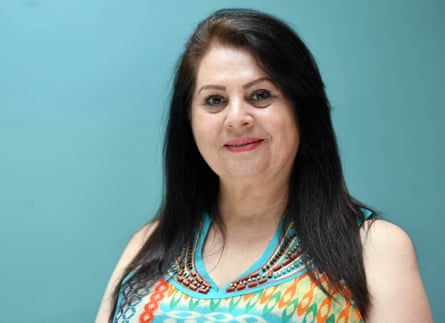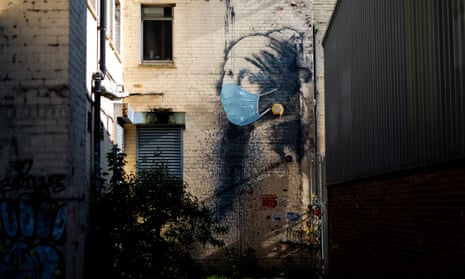Girls at risk of child marriage are falling under the radar of authorities in England and Wales because of a lack of record-keeping by more than half of the departments responsible for children’s social care, a charity has warned.
IKWRO women’s rights organisation says it is preparing for a spike in cases following the easing of lockdown and is urging social workers to be ready to respond.
It has written to local authorities amid concerns that some social workers were not fully trained or aware of the complexities around “honour”-based abuse including child marriage.
Responses collected under the Freedom of Information Act reveal that between 2018 and 2019, the latest data available, there were 165 children in England and Wales at risk of child marriage.
Yet 56% of departments responsible for children’s social care in the two countries were found not recording how many minors were at risk of child marriage.
During the same period 280 children in England and Wales, including 117 looked-after children, were identified by those departments that were collecting data as at risk of “honour”-based abuse. Yet 66 local authorities out of those questioned said they had no process for recording those at risk.
IKWRO says it is vital authorities record every potential case of these complex crimes to understand and respond to their prevalence on a national scale.
Its founder, Diana Nammi, said: “We know through years working with survivors as well as data collected from police forces that they affect nearly every local authority in the country.”
The latest UK-wide figures show there were many more cases of child marriage than local authority data would suggest. Of the 1,764 cases involving a possible forced marriage the Forced Marriage Unit gave support to in 2018, 574 (33%) involved victims under 18. The data for 2019 is yet to be published.
Nammi said since the lockdown measures came into place IKWRO has seen “an increased intensity” in the cases of “honour” abuse already known to its workers and that they anticipate a spike in child marriage cases when lockdown eases.
“At present with schools closed and restrictions on movement many at-risk children are not interacting with professionals who should be able to spot the signs and refer them to social services for protection,” said Nammi.
“As the lockdown measures begin to lift, now more than ever, social services must be equipped to properly understand the dynamics of ‘honour’ and be ready to safeguard children. If they fail to do this, many will be left vulnerable to severe, lifelong harm.”
Nora Kateb* is among those who feels failed by children’s social care. She had a strict upbringing and after she was caught at the age of 15 kissing a boy during a family trip to Algeria, she started to fear her own family.
“As soon as I started having periods my mother forbade me from going out with friends, took away my jeans and forced me to wear the hijab,” she says. “I was told when I turned 16, I’d be taken back to Algeria where we had relatives. I was scared my family would force me to marry or they would hurt or even kill me.”
Social services became involved after Kateb, now 19, started self-harming and ran away from home. She says she felt let down after social workers took her home and sided with her parents. She said: “I didn’t feel they understood the danger I was in – they kept saying, ‘you’ll be back home soon’, and would only listen to my family.”
Her experience is not uncommon, according to Selma Bayou, an independent domestic violence advocatefor IKWRO.
She said: “Social workers are mostly brilliant people who care about child protection but some do not know the basics and lack of training is a big problem. Some are even unaware of forced marriage protection orders which are issued by the family court to prevent a child’s parents taking them abroad.”
She cites the case of a girl from north London who was placed in care after her family forced her to wear the hijab and abused her over her “western” behaviour. Bayou says “alarm bells went off” when a social worker called the charity seeking advice because the girl was refusing to go home.
She said: “It is very worrying they were trying to send her back to her family without recognising the risks. Some professionals do not understand the lengths families will go to in order to protect their perceived ‘honour’. These types of cases can lead to murder.”
Nammi is calling for a national review of how children’s social care is responding to child marriage.

She said: “Social workers have a crucial role to play in recording and responding to these cases. But if they are handled incorrectly, the consequences can be fatal. It is vital to record every case so the adequate resources are in place.”
Even in areas where police data shows a high prevalence of forced marriage or “honour”-based abuse, some local authorities were found not to be recording children at risk.
During 2018, West Yorkshire police recorded 348 reports of incidents related to forced marriage and 184 where “honour-based violence” was a factor. Yet Bradford metropolitan council has no process in place to record children at risk of these crimes.
Birmingham city council was also among those areas not monitoring under-18s at risk of child marriage and honour crimes, despite West Midlands police recording 188 reports of “honour”-based violence and 34 of forced marriage in 2018.
“Despite a lack of intelligence we know forced marriage and ‘honour’-based abuse is happening in the UK,” says Ivan Balhatchet, the National Police Chiefs’ Council lead on the issue. “The first forced marriage prosecution in England in 2018 showed even when children’s services are involved, this terrible crime can still be committed”.
“It’s important ‘honour’-based abuse against children is treated in the same way as any form of child abuse, and safeguarding is consistent. This problem cannot be tackled by policing alone and requires everyone to play their part.”
Birmingham Children’s Trust says it does not collect data in a way that allows it to provide figures on children at risk of forced marriage. Its chief executive, Andy Couldrick, said: “If there is a risk of child marriage or ‘honour’-based violence emerges we work with young people, their carers and partners across police, health and education to keep our young people safe.”
Irfan Alam, deputy director of children’s social care for Bradford, said: “Our case management system is not sufficiently configured to be able to determine exactly how many children have been supported [due to these crimes]. We recognise we need to get better at reporting these issues and we are working to enhance our recording mechanism.”
He added: “We want to stress though, that where there are risks of honour based violence and forced marriage we have always taken assertive action to protect children. We carry out regular training with agencies across our district so they can identify children who they suspect are vulnerable to these crimes so we can offer support and protection.”
A government spokesman said: “We are working closely with the police and charities and forced marriage protection orders remain a priority for the family courts during the pandemic.”
* Name changed to protect identity
